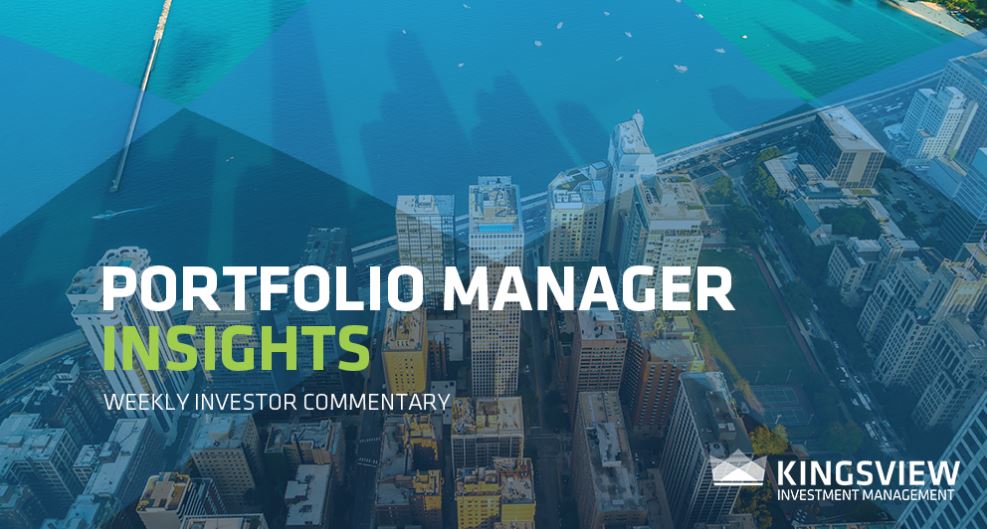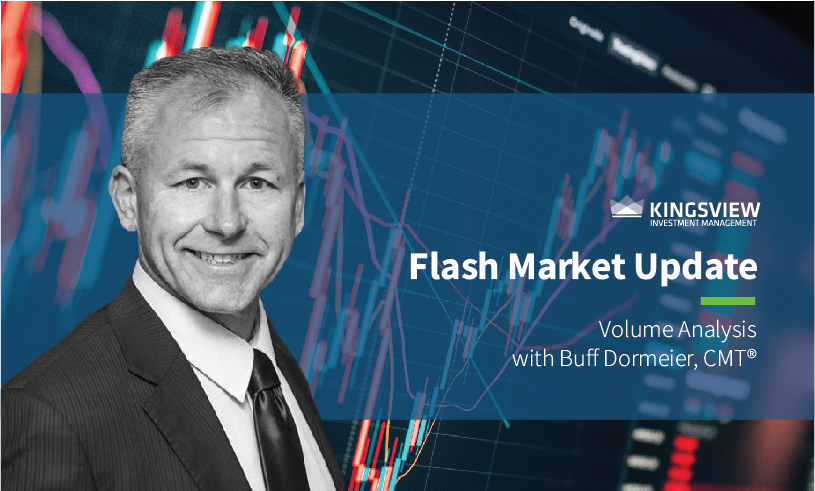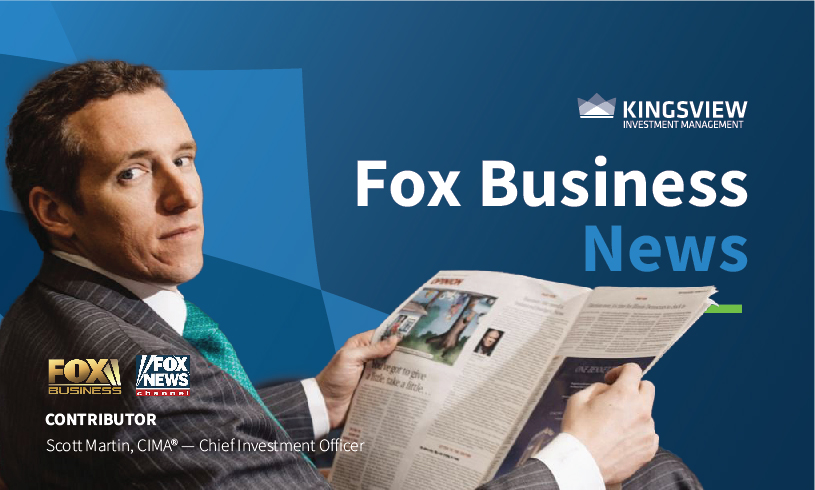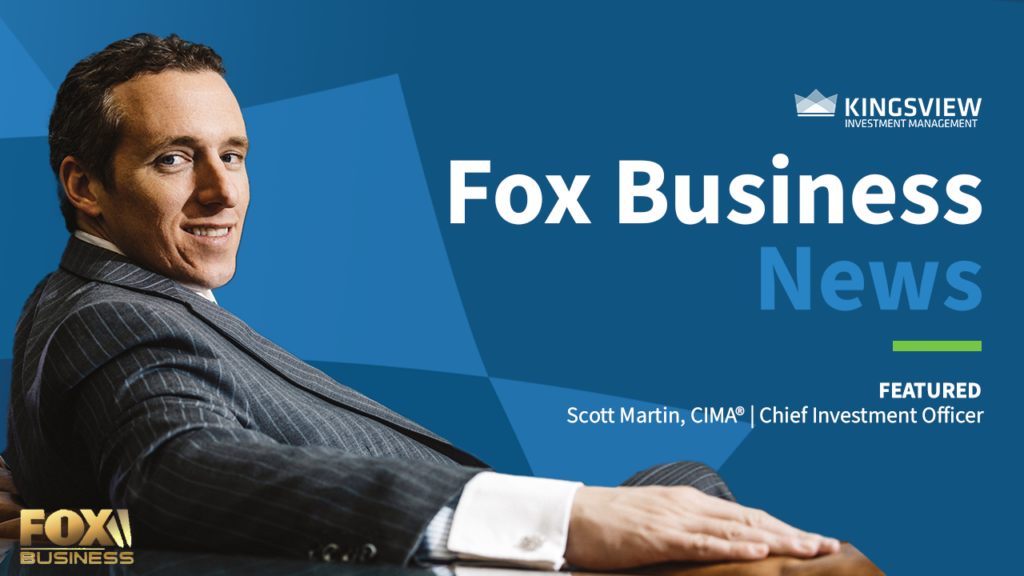CIO Scott Martin on Fox News 8.11.22 – Making Money with Charles Payne
Charles Payne, Economy, Fox News, Kingsview Investment Management, Kingsview Partners, Scott Martin, The Fed
Program: Making Money with Charles Payne
Date: 8/11/2022
Station: Fox Business News
Time: 2:00PM
CHARLES PAYNE: So this has been one heck of a bear market bounce, but the Fed insists they have a lot more work to do. The market, though, continues to call their dovish bluff. I want to bring in G squared private wealth, CIO of Victoria Grain and King’s View Wealth Management, Scott Martin and Victoria. Is the market in your mind maybe getting ahead of itself here?
VICTORIA GREENE: Yeah. I hate to be boring, but let’s talk about the market math. Like let’s look at fundamentals. Fundamentals aren’t fun. It’s a it’s a technical rally here. But let’s say we’re around a 2 to 6 earnings right now that would put us at a 19 handle. And I think that’s just getting a little expensive. Earnings weren’t that great. This was one of the first times in Q2 that you actually saw a positive or negative earnings surprise, but the stock still reacted positively. So I do know sentiment got too bearish. I do know we hit oversold, but the market’s acting like we’re coming out of a recession and not going into one. So typically a market bottom happens when the world is terrible. You know, think about March 2008 or March 2020. But here we are sitting, we’re actually we’re very full employment. And so I feel like right now you should look and listen to the bond curve, because what they’re telling us over there with the 210 and the 510 inversion is a recession still coming? So I feel like this rally is premature and still a bear market rally.
PAYNE: Scott does a great point. You know, whether it’s 2020 or 2009, the anxiety might not be there, but the verbiage is there. Right. I mean, you know, and to the point that this market was extremely oversold, for the most part, Wall Street is still very negative. Is that one of the reasons is that the wall of worry, it’s climbing.
MARTIN: Yeah. And I agree. Anxiety is a good word to use, Charles, because it’s always darkest before dawn, as we’ve said many times this year, because of obviously the given circumstances. But those are the times, as Victoria pointed out. You’ve got to be aggressive. I mean, you know, by when others
are selling. And frankly, I think she’s right in a lot of cases, I would argue, too. I mean, you look at RSI, you look at stochastic ex, you look at MACD Histograms. This is all fun stuff. You guys can research on your own. It’s things that are overdone. Now, though, Charles, to your question of Victoria earlier, is the market ahead of itself? Yes, short term it is. But long term, I think the prospects are pretty good for an upward swing.
PAYNE: Well, let’s talk about one stock that probably is not ahead of itself, even though it’s the Stock of the Day and the mouse there, it’s roaring today. Disney, the top performer in the S&P. Better numbers on top and bottom yesterday. Scott, do you think there’s more upside here? You think all of their issues are for the most part behind them?
MARTIN: Hardly. But let’s say it. I mean, the stock just got really hated and got thrown out with everything else in the house and therefore the house of mouse was due to bounce. We own the stock in a bunch of our ETFs and a bunch of our strategies, so we’re having a nice day today, Charles. But Disney still has some headwinds ahead of it. I mean, the recession is here. As was pointed out earlier, consumer spending is a little frisky, to use a word. And Disney just doesn’t seem like it has the luster that it once had. So we still own it because the fundamentals are pretty good. But I’m not looking for a crazy upside from here. And take a note from how the stock traded today. There wasn’t a big chase on the stock after it opened and gapped up. So therefore I still believe there’s some sellers in the name and they’ve got to get those sellers out of there before it’s going to rally hard and get the buyers in there as well.
PAYNE: Now, speaking of the consumer, according to Bank of America, discretionary spending is holding up in lower income households. Of course, that has a lot to do with lower gasoline prices. And you know, Victoria, I want to know, how does this play out in the market? Does it benefited Disney or did it go down and maybe find something else, you know, some of these discount stores.
GREENE: Yeah. So Walmart’s a good example of that. They’re more exposed to the Main Street target client necessarily, but I’m not sure I fully agree with Bank of America’s numbers. I feel like we’ve seen them increase spending on credit cards and get more into debt rather than actually having savings and
having healthy balance sheets. So we are actually very worried about the main street consumer. And look at what Wal-Mart, Target and a lot of those the stores that cater to that consumer, they’re not doing very well right now on the low income household. Rent and food was still really pricey. They finally got a reprieve on gasoline rents. Now, for the first time ever, average rents over $2,000 a month. And then food prices kept going up as well in July. So I do question the health of the consumer and I do think it’s a drag. You know, there are some we like we like the Costco, the Dollar General. You know, we feel like they’re well positioned. But if you look at actually the stocks that have done well, it’s the higher end stocks. You know, you have like the Neiman Marcus, the Tiffany’s, the you know, the Louis Vuitton in the world that actually had wonderful earnings. So there’s resilience in the high end, but the lower income households are getting eaten by inflation a little bit. And we’re seeing that in earnings.
PAYNE: You know, you just mentioned the gasoline reprieve that they’ve gotten, at least, you know, some may it may be temporary. Right. I.e., the IEA this morning raised their global demand forecast. They see 99.7 million barrels a day this year, 101.8 million barrels next year. Scott, it sounds modest, but oil stocks are acting pretty good today. And a lot of folks believe structurally there’s going to be some sort of a bounce in oil. That means gasoline goes back up. What does that mean for the consumer?
MARTIN: I don’t know if I believe that, Charles. I’ll tell you, I think we’ve seen the easy money made in oil and energy this year already. We own some at the beginning of the year through about May and then got out of there, luckily. And that was just by pretty much luck, actually. But I think energy has got got some headwinds to it just because of the fact that, as we’ve talked about before, Charles, there’s a recession here. Demand is falling off and it’s not like the economy is going to roar back. It just feels like things are kind of stabilizing, just finding some footing here. So energy is okay here going forward. But I think there’s some more desirable areas. And if you like energy, if you must own energy, I don’t go for the integrated ones. I don’t go for the driller ones. I look at the pipelines. MLP is a nice pipeline ETF where they’re just basically the tollbooth saying the commodity through the pipes and paying you a nice dividend along the way.
PAYNE: I was going to say that’s a real great dividend player. Victoria, I think you like natural gas and utilities here, right?
GREENE: I do. And I also like the EMP. I’m sadly not quite as lucky as my friend over here, but we stayed long energy a little bit. Yes. She didn’t hurt tremendously. We’re watching prices. Some of the U.S. EMP’S and the Permian like Devon’s our favorite. We see strength there because they’re printing cash right now. Their breakevens are very low. And we still also like natural gas specifically. We like Cheniere, the LNG exporter, because Russia’s loss is Cheniere’s gain. They’re exporting more than 14% this year. They’re also a very well-run company. And so if you look and they just had earnings and they were fantastic Q2 earnings, you almost couldn’t ask for better a better beat across it. But if you look at how the market shifting, one of the reasons oil demand is projected to go up is because you’re seeing power plants switch from natural gas to oil. But we still see natural gas, a huge shortage in Europe. And I think the oil trajectory is going to play out with the recession trajectory. And what kind of recession hits us here? You know, because typically oil prices do drop during recession. But if we see where we’re having a pickup demand in Europe because they don’t have enough energy supply over there, we may see a little more resiliency in prices. I also think OPEC really can’t drill any more capacity. One of the reasons they only increased their output 100,000 barrels is because I don’t think they can actually get more barrels to the market.
PAYNE: Yeah, we were told we were warned of that. By the way, we’ve done three segments and got two upgrades or two buys on Cheniere, so maybe, maybe someone’s on to something. Victoria Scott, thank you both very much. Appreciate it.



